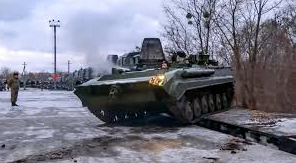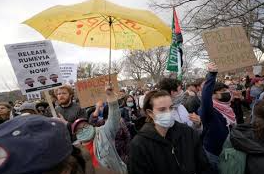
Kremlin Confirms Troop Transfers to Belarus Amid Tensions with NATO and Ukraine
Russia has amplified its military presence near Ukraine’s border, fuelling escalating fears of a potential invasion. On Tuesday, the Kremlin announced plans to relocate soldiers from the country’s eastern regions to Belarus for large-scale joint military exercises, strengthening its forces in the area.
Deputy Defence Minister Alexander Fomin stated that the drills aim to enhance the coordinated response to external threats within the Russia-Belarus alliance, which maintains strong political, economic, and military ties. However, he refrained from specifying the number of troops and weapons involved.
According to Belarus’s Defence Ministry, the first phase of the exercises, scheduled to last until February 9, will focus on deploying troops, safeguarding key facilities, and testing air defence systems.
Meanwhile, NATO extended an invitation to Russia for renewed discussions on European security after inconclusive US-Russia talks last week. Jens Stoltenberg, NATO’s Secretary General, emphasised that the alliance’s priority is preventing an attack on Ukraine. “We are open to dialogue but firm on our principles,” he said following a meeting with German Chancellor Olaf Scholz.
Western nations are revising their economic response to a potential invasion. Concerns over global market disruption have reportedly led to abandoning plans to exclude Russia from the SWIFT payment system. Nevertheless, the White House maintained that all options remain under consideration.
Germany is contemplating halting the Nord Stream 2 gas pipeline project in response to Russian aggression. Critics argue the pipeline increases Europe’s reliance on Russian energy. German Foreign Minister Annalena Baerbock described Russia’s military buildup as a “threat” during her meeting with Russian counterpart Sergey Lavrov in Moscow. Lavrov, however, defended the pipeline, claiming it bolsters energy security for Germany and Europe.
In December, Moscow issued controversial demands to NATO, including barring Ukraine from joining the alliance—an ultimatum rejected by Europe and the United States.
The conflict in eastern Ukraine continues to claim lives, with over 14,000 fatalities since fighting began in 2014 following Russia’s annexation of Crimea. As many as 100,000 Russian troops are reportedly stationed near Ukraine, a claim Moscow denies.












